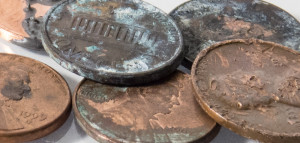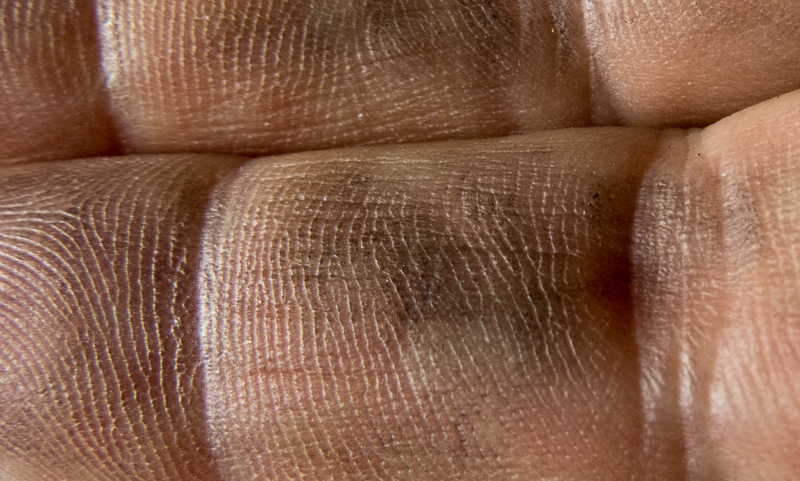After handling a lot of pennies, I feel vaguely ill.
The Daily Mail claims a 1-Euro coin is dirtier than a toilet seat; and the Internet is filled with similar dire warnings about how dirty money is.
But read the fine print and pay attention to the realities of risk.
First of all, the amount of bacteria detected on coins is not enough to make you sick. Your body is strong enough to fight off a few stray bacteria or viruses. After all, every environment is FULL of microbes that your body routinely defends against.
Second, touch alone doesn’t transmit serious diseases from coins. You’d have to get your fingers really dirty and then stick them in your nose or mouth to transmit a full load of harmful microbes.

Also, pennies are self-cleaning – copper, itself, is antimicrobial. People in ancient times carried and drank water out of copper vessels because they knew (probably through trial and error?!) that it made the water cleaner.
There’s a whole Wikipedia page about it – here’s a sample:
Copper alloy surfaces have intrinsic properties to destroy a wide range of microorganisms. In the interest of protecting public health, especially in healthcare environments with their susceptible patient populations, an abundance of peer-reviewed antimicrobial efficacy studies have been conducted in the past 10 years regarding copper’s efficacy to destroy E. coli O157:H7, methicillin-resistant Staphylococcus aureus (MRSA), Staphylococcus, Clostridium difficile, influenza A virus, adenovirus, andfungi.[23]Stainless steel was also investigated since it is such an important surface material in today’s healthcare environments. The studies cited here, plus others directed by the United States Environmental Protection Agency, resulted in the 2008 registration of 274 different copper alloys as certified antimicrobial materials that have public health benefits.
So just wash your hands, and until you do, keep ’em away from your face.
My penny for this thought is a 1995 that looks really nasty, but isn’t.

